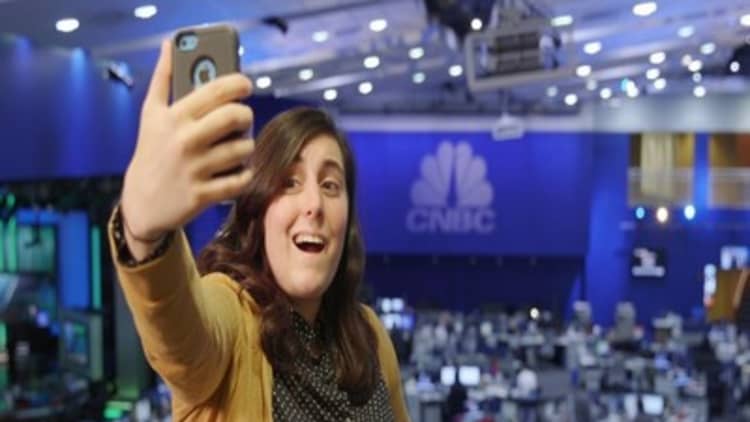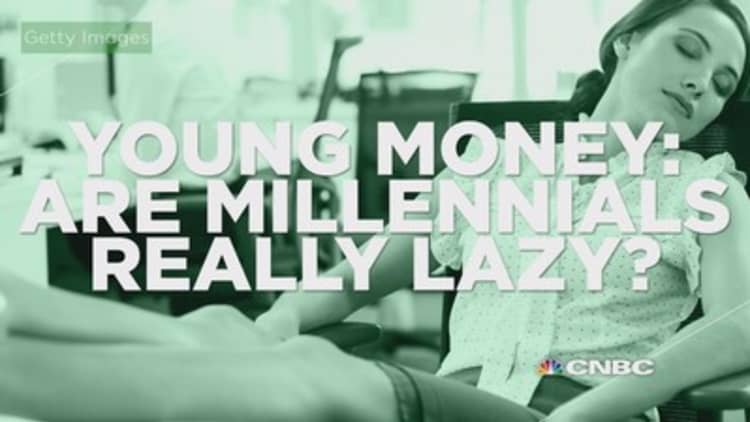


Add this to the growing list of social media faux pas: Don't pose for or post party pics to your Instagram account hours after your employer had a round of layoffs.
That's what J.Crew's vice president of men's merchandising did, according to the New York Post. One Instagram pic showed him and a colleague celebrating at New York City bar near the company's headquarters hours after he delivered layoff news to 175 employees, the Post reports. The image had hash tags referring to "The Hunger Games," a popular book and movie series about a post-apocalyptic future where children fight to the death in an annual televised contest.
His bosses were not amused. "As soon as we were made aware, the appropriate actions took place," a J. Crew spokesman told the Post.
"Don't be an idiot online," warns Jon Acuff, author of "Do Over: Rescue Monday, Reinvent Your Work, and Never Get Stuck." "The digital bridges you burn, you burn forever."
Seems like simple enough advice, doesn't it? But it's surprising how often it goes unheeded—particularly when it comes to posting personal photos and comments that could have professional implications.
There's the Taco Bell employee who took a photo of himself licking a stack of taco shells, then posted it on Facebook. Or the bank intern who emailed his boss saying he had to skip work because "something came up at home," then appeared in a Halloween party photo dressed as what looked like Tinkerbell. (His boss famously attached a copy of the photo in his response to the intern, adding "cool wand," and copied his colleagues.) Then there's the job seeker who took to Quora to ask for advice on whether to take a job with the ride-sharing company Uber or the automated human resources company Zenefits—both of which had made offers. When the asker listed as a "con" of Zenefits the fact that it "isn't a buzzword like Uber," the CEO of the start-up answered in the comments that he was rescinding the job offer.
Read MoreSpotify CEO deletes apparent tweet directed at Apple
The social media mistakes that most people make aren't as extreme, but the results can be just as disastrous. Before you hit "post" again, keep these tips in mind.
Remember what's public is public
It's called social media for a reason. Even if you have privacy settings in place, your posts are social and they can be shared. "Ultimately, your social media is your resume," said Acuff. So pay close attention to your tweets, photos and posted comments, particularly if you're job hunting. A recent survey by recruiting platform Jobvite found 93 percent of recruiters check out social media profiles of prospective hires before extending an offer.
When looking for a job, Andy Challenger, vice president at Challenger, Gray and Christmas, said the goal with social media boils down to one objective: "paving the way for a face-to-face introduction."
That's not to say that you can't post a picture of you having a drink with friends on Facebook, but ask yourself whether it might reflect badly on you if a recruiter were to see it. A photo of you toasting a friend's promotion might be fine, but one in which you've clearly had a few drinks might lead a recruiter to question your judgment.
Read MoreOne number that can save you thousands of dollars
Acuff also warns against being too outspoken about your views, whether you're sounding off on politics, religion or your former or current employer—something you definitely want to avoid. Acuff said he's seen multiple cases in which a misguided tweet or post hurts someone's job opportunities, and recalls a public speaker he knows who made fun of a commercial of a national brand and lost his job because of it.
Use your social networks to ... network
"Use LinkedIn as your Rolodex," said Challenger. "It is a great way to be the most networked person in your city."
He suggests interacting with connection's posts or congratulating them if they get a new job. Positive interaction, he said, "helps keep those contacts with a huge array of people."
Try personalizing your connection requests to build a stronger professional network on LinkedIn. "If you're requesting an introduction, write a note to your mutual connection and then a separate note to the person you want to meet. In both cases, draft a compelling subject line and a short introduction that explains why you hope to connect," said Challenger.
Read MoreMillennials aren't as lazy as you think
But don't go overboard. Challenger suggests posting or tweeting "no less than once a week and no more than three times a day." You want people to know who you are and remind them of your expertise, but you don't want to annoy them.
He also recommends joining professional groups on LinkedIn and Facebook that reflect your real-life interests and experience. If you were a marketing major at the University of North Carolina at Chapel Hill, say, you'd join your alumni group and a professional marketing group to get the most benefit of group participation.
Update your LinkedIn profile carefully
Don't lie about your work experience because that will get you fired.
Your main picture, especially on LinkedIn, should always be professional. Even if you just have "a friend take one with an iPhone up against a wall," said Challenger. "It shouldn't be a group shot or out at a bar and you cropped yourself out at a blurry angle."
If "your Facebook profile is amazing and you have an anemic LinkedIn," Acuff said, you should spend as much time making your online resume that much better.
Read MoreBiggest millennial homebuyer mistakes
Keep it positive
Tweeting under the influence is never a good idea. "I've seen mistakes that happen and you almost wish the phone had a Breathalyzer," Acuff said.
Remember what you put out on social media is your brand even if you disclose on your social media accounts that these are your opinions, not those of your company. "They aren't separate," Acuff said. "You are the brand of your company."
Ask yourself, would you want your tweet or Facebook post on your resume? Would you say the comment to a person's face if you were having coffee with them?
Read MoreWhat you're giving away for 'free' social media
People love company cheerleaders on social media, not haters. "Management is always looking to promote people with team spirit and positivity about the company," Acuff said.
Is the snark really worth it? "Even if you have privacy settings, there are too many ways mistakes can get out there, and it's not worth your career for an extra 15 likes," Challenger said.


